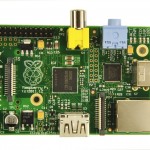I finally quashed (more or less) a couple of issues that had been nagging me with the website that I created and maintain for Orange District, Occoneechee Council, BSA. I did some maintenance this weekend, upgrading Drupal core as well as some modules that needed updates. The web-based module updater broke when I switched to PHP 5.4, as my ISP is deprecating PHP 4 and 5.2, and I needed to do manual module updates. Hopefully the web module updater will get fixed in Drupal 7, but some of the things I read made me think it won’t be until Drupal 8. Also, I’d been having a problem with the calendar view throwing lots of warning errors and I’d not been able to find out what was causing it. Seems to have varied causes with module/database dependencies but predominantly in Views and CTools. This also started when I went to PHP 5.4. I was able to figure out what to back out to get the warnings to stop (a Google calendar overlay), but I’d like to get that functionality back. I opened up an issue on the FullCalendar module to see if anyone has ideas.
Also, I spent some time this weekend working up a website for a friend who’s a local farmer. We found a nice Drupal template and have a skeleton set up…

